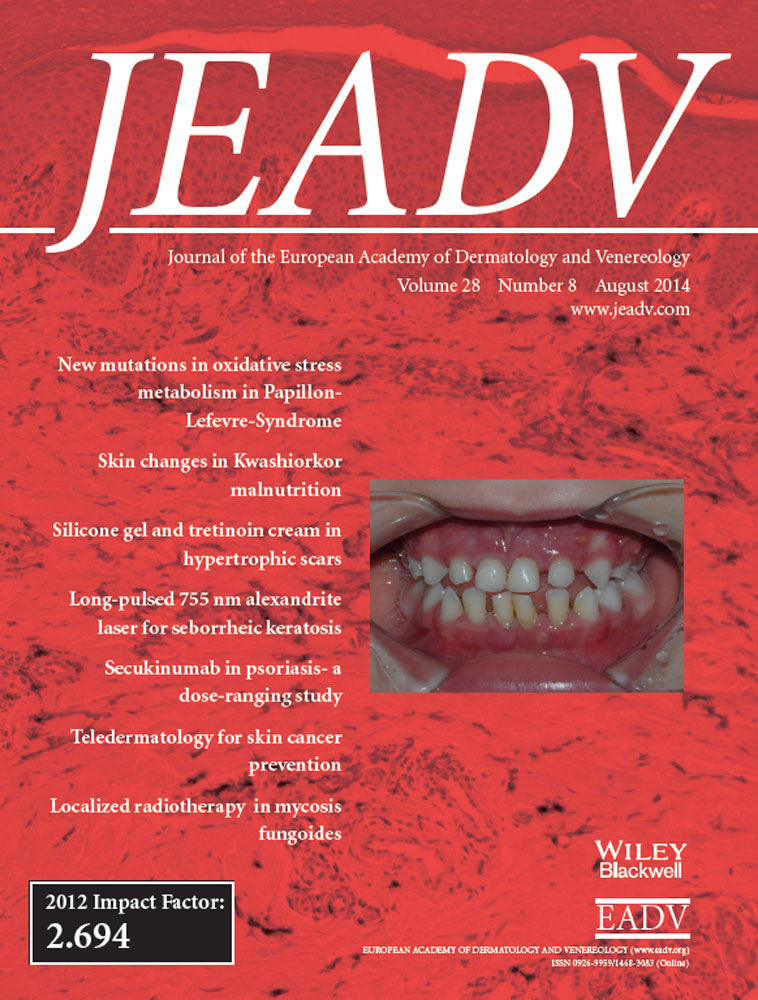Intralesional bevacizumab as in-add adjuvant to immunocryosurgery for locally advanced basal cell carcinoma
Conflicts of interest
Both authors have received Travel Grants to attend meetings and present relevant data from MEDA Hellas.Funding sources
This study was partially supported by the Special Research Committee Account of the University of Ioannina No 22195.Abstract
Background
Basal cell carcinoma (BCC) is a tumour that relies mainly on aerobic energy assimilation for growth and depends on an extensive microvascular network to support adequate oxygen supply. In this tumour, higher expression levels of vascular endothelial growth factor (VEGF) has been described to correlate with increased microvessel density and more aggressive biologic behaviour.
Objective
To report feasibility and effectiveness of intralesional bevacizumab, an anti-VEGF antibody, as an in-add adjuvant to immunocryosurgery (cryosurgery sessions during daily topical imiquimod application) for the treatment of locally advanced BCC.
Method
Seven patients (six uncontrollable or extensive local disease; one tumour unresponsive to repeated immunocryosurgery) were treated with 1–3 sessions of intralesional injections of bevacizumab (25 mg) at the day of cryosurgery during ongoing immunocryosurgery. Follow-up after treatment was 18–48 months.
Results
In 4/7 cases tumours cleared completely and 3/7 remained relapse free during follow-up. A relapsed tumour and a further case that did not clear after repeated immunocryosurgery cycles were excised with significantly reduced burden of surgery. Finally, two cases with previously locally uncontrollable BCC tumours regressed significantly and stabilized.
Conclusion
In-add intralesional bevacizumab is a feasible and potentially effective addition to minimally invasive schemes for the treatment of locally advanced BCC.




